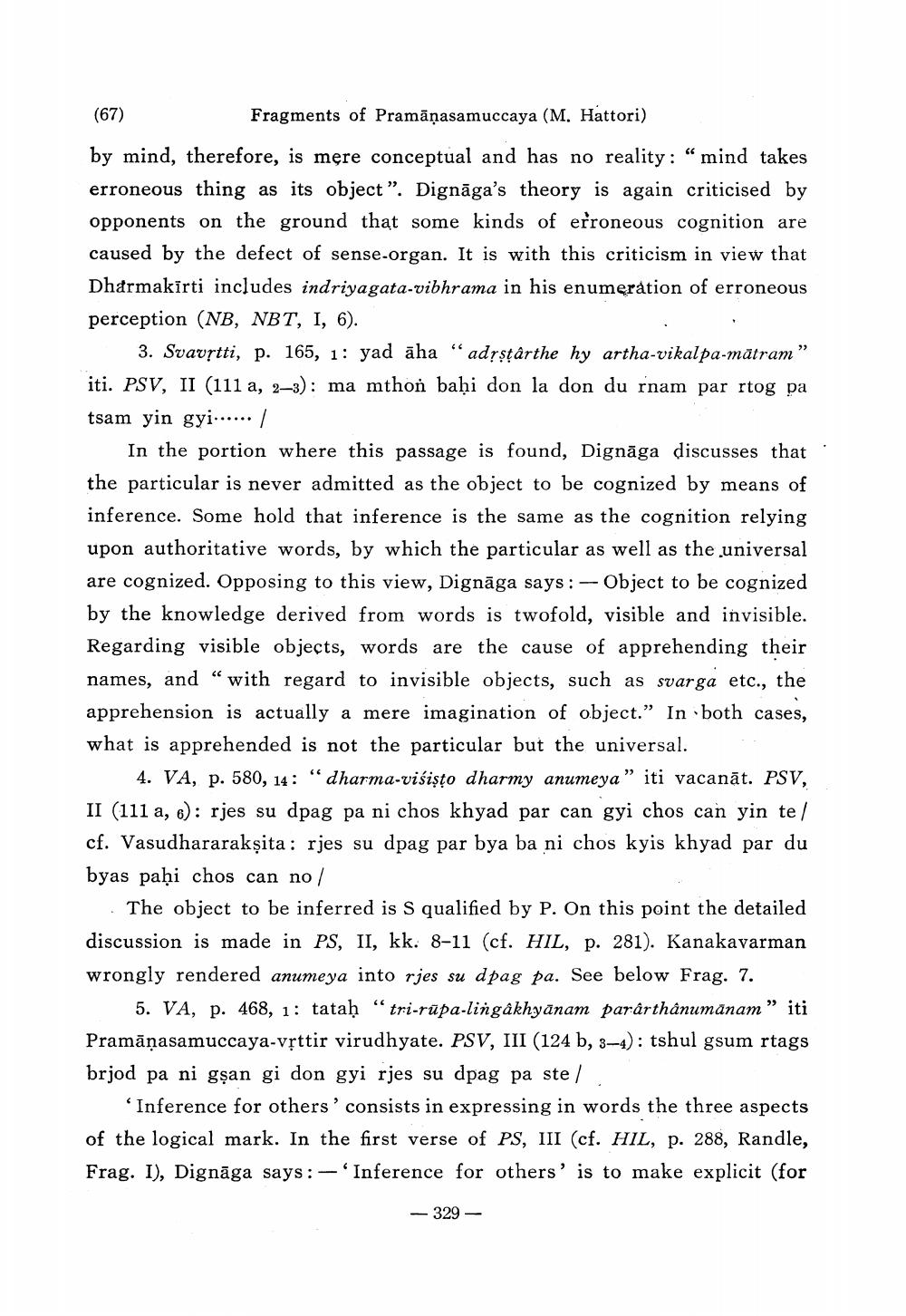Book Title: Fragments Of Pramana Samuccaya Author(s): Massaki Hattori Publisher: Massaki Hattori View full book textPage 2
________________ (67) Fragments of Pramāṇasamuccaya (M. Hattori) by mind, therefore, is mere conceptual and has no reality: “mind takes erroneous thing as its object”. Dignāga's theory is again criticised by opponents on the ground that some kinds of erroneous cognition are caused by the defect of sense-organ. It is with this criticism in view that Dharmakīrti includes indriyagata-vibhrama in his enumeration of erroneous perception (NB, NBT, I, 6). 3. Svavrtti, p. 165, 1: yad āha "adrstârthe hy artha-vikalpa-mätram” iti. PSV, II (111 a, 2–3): ma mthon baḥi don la don du rnam par rtog pa tsam yin gyi...... / In the portion where this passage is found, Dignāga discusses that the particular is never admitted as the object to be cognized by means of inference. Some hold that inference is the same as the cognition relying upon authoritative words, by which the particular as well as the universal are cognized. Opposing to this view, Dignāga says: -- Object to be cognized by the knowledge derived from words is twofold, visible and invisible. Regarding visible objects, words are the cause of apprehending their names, and “with regard to invisible objects, such as svarga etc., the apprehension is actually a mere imagination of object.” In both cases, what is apprehended is not the particular but the universal. 4. VA, p. 580, 14: “dharma-viśisto dharmy anumeya” iti vacanāt. PSV, II (111 a, 6): rjes su dpag pa ni cho khyad par can gyi chos can yin te / cf. Vasudhararakṣita : rjes su dpag par bya ba ni chos kyis khyad par du byas paḥi chos can no/ The object to be inferred is S qualified by P. On this point the detailed discussion is made in PS, II, kk. 8–11 (cf. HIL, p. 281). Kanakavarman wrongly rendered anumeya into rjes su dpag pa. See below Frag. 7. 5. VA, p. 468, 1: tatah “tri-r@pa-ligakhyānam pararthân mẫnam” iti Pramāṇasamuccaya-vịttir virudhyate. PSV, III (124 b, 3-4): tshul gsum rtags brjod pa ni gşan gi don gyi rjes su dpag pa ste / “Inference for others' consists in expressing in words the three aspects of the logical mark. In the first verse of PS, III (cf. HIL, p. 288, Randle, Frag. I), Dignāga says:- 'Inference for others' is to make explicit (for - 329Page Navigation
1 2 3 4 5 6
